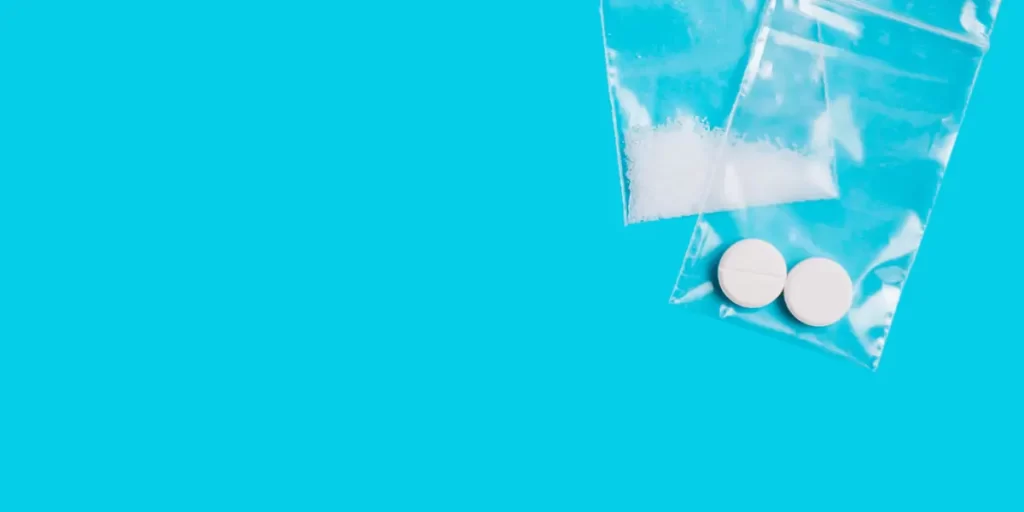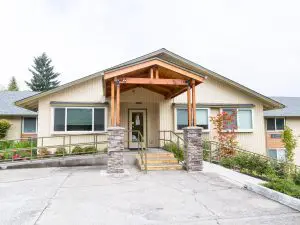Ecstasy Treatment in Washington and Oregon
Written by Renee Deveney
& Medically Reviewed by Dr. Annie Tye, PhD
Medically Reviewed
Up to Date
Last Updated - 6/17/2022
View our editorial policy
Ecstasy is a common name for the illicit synthetic drug 3,4-methylenedioxymethamphetamine (MDMA). Although pharmacologically distinct from hallucinogens and stimulants, ecstasy has a chemical structure that is similar to those of some hallucinogens (mescaline) and some stimulants (methamphetamine). Ecstasy has profound and complex psychoactive effects on brain function, causing a temporary (3–6 hours) sense of euphoria and intense pleasure associated with tactile stimulation. Finding treatment for Ecstasy abuse can help you or a loved one start a healthier lifestyle.
Is Ecstasy Addictive?
There is a great deal of controversy surrounding whether ecstasy is addictive. Rigorous studies have been hampered by restrictions on the research of drugs that are classified by the Drug Enforcement Agency (DEA) as Schedule I substances (meaning that the federal government considers them to have no valid medical use and a high potential for abuse). Available evidence does not support that ecstasy meets criteria for dependence or addiction as defined by either the Diagnostic and Statistical Manual of Mental Disorders (DSM-5) or the International Statistical Classification of Diseases (ICD-10).
There are, however, reasons to believe that regular ecstasy use may cause dependence in some people. Ecstasy is associated with persistent serotonin neurotoxicity in the brain that could affect dopamine regulation of the “reward pathway.” A handful of case studies have concluded that some individuals do meet criteria for dependence as defined by the DSM and are candidates for ecstasy rehab.
An important and often overlooked caveat to any evaluation of risks associated with ecstasy use is the fact that, by virtue of its status as a schedule I drug, ecstasy is necessarily purchased through risky “street” transactions. A study published in 2018 questioned 351 people who used ecstasy and found that more than half the participants suspected that they had purchased adulterated pills. It was subsequently confirmed that 49.2% of the tested ecstasy contained methamphetamine or amphetamines.
Treatment Options for Ecstasy Abuse
Ecstasy abuse treatment follows a similar trajectory to treatment for other drugs and often includes a period of detox that is associated with acute withdrawal symptoms, followed by residential or outpatient programs that are designed to support people in recovery and help them discover a fulfilling sober lifestyle.
Medical Detox
Although exceptions exist, ecstasy is generally not associated with debilitating or prolonged detox that requires medical supervision. However, people who have used ecstasy chronically may find that medically supervised detox allows them to avoid triggers that can derail early recovery.
Medical detox may be particularly valuable in cases of adulterated ecstasy, particularly if someone has regularly used ecstasy that includes methamphetamine, PCP, heroin or other drugs that rapidly lead to addiction. If someone has ingested a large amount of adulterated ecstasy, they may be experiencing overdose symptoms that are caused by a drug other than MDMA. In such cases, medical intervention and pharmacotherapy may be appropriate.
Residential Rehab
People who are concerned that they have developed ecstasy dependence often find that residential rehab is a valuable step toward recovery. For people who have used large amounts of ecstasy over a prolonged time period, early recovery can be challenging and avoiding triggers is paramount. Residential rehab programs give people who are in the first days of recovery a safe place that eliminates most triggers while simultaneously providing 24/7 access to medical and rehab professionals who can address questions and concerns as they arise.
Outpatient Rehab
Outpatient programs can vary quite a bit in intensity and duration. Some programs require all-day commitments, while others are weekly or bi-weekly therapy sessions. Most people who have undergone a residential program to address an ecstasy use disorder will transition into outpatient care. Some people who are concerned about mild ecstasy misuse may find that an outpatient program is an appropriate starting point to get them on the path to recovery.
Dual Diagnosis
An often overlooked component of substance use disorders is the possibility of an underlying mental health concern. Ecstasy is associated with experiences that may serve to artificially and temporarily boost feelings of self-worth and value. Dual diagnosis treatment can be valuable for people who have attempted to self-medicate undiagnosed depressive or anxiety disorders using ecstasy.
Aftercare & Sober Living
Most people who enjoy long-term recovery believe that sobriety requires constant maintenance. Aftercare programs are offered by most quality rehab facilities and are designed to support clients in all stages of recovery. Aftercare can take many forms, including individual and group therapy, case management, relapse prevention, and educational events that introduce fun new activities. People who struggled with ecstasy use are often fun-loving and sociable; aftercare programs are a valuable replacement for the party-like atmosphere that is often associated with ecstasy use.
What Does Ecstasy Rehab Cost?
Rehab can be expensive, and costs vary quite a bit depending on the duration and intensity of the program, whether or not medical interventions or other treatments are required, quality of care and amenities. Some programs also have associated admission fees. Many insurance programs help cover the cost of rehab. Medical detox can cost several hundred to several thousand dollars, and a 30-day residential program can cost several thousand dollars to more than $25,000. Outpatient costs are similarly variable, ranging from around $1,000 to more than $10,000 for a 30-day program.
Does Insurance Cover Rehab?
Many insurance providers can help to offset the cost of rehab. Make sure that you find a rehab center that is “in-network” for your policy to avoid unexpected costs. It is also possible to participate in rehab without insurance through other programs or services, including:
- Government-assistance programs: Most state and local governments have free or low-cost rehab programs available to people who qualify. Good starting places for Oregon and Washington State government-assisted programs are the official state websites.
- Sliding-fee programs: Many public and private rehab programs offer sliding fee scales to accommodate clients from all income brackets.
- Private-pay programs: For people who can afford to pay out-of-pocket, private-pay programs often offer exclusive luxury programs that guarantee privacy and discretion.
Choosing an Ecstasy Rehab Center Rehab Near Washington & Oregon
Several factors should be considered when you are evaluating ecstasy rehab centers. A multidisciplinary team that can address your specific concerns is at the heart of effective treatment. Other important considerations include:
- Location: Recovering from ecstasy use may involve avoiding triggers that could lead to relapse. Rehab centers that are far from home may be the most reliable way to avoid initial triggers.
- Cost: Rehab can be expensive, but there are ways to ease the expenses. Many insurance policies (including Medicaid) may cover some or all of the expenses associated with ecstasy rehab.
- Methods of treatment provided: The best rehab centers can address the physical and psychological aspects associated with recovery from ecstasy use. Look for programs that provide access to both.
- Success Rate: Client confidentiality issues and the accuracy of self-reports from former clients can both affect reported success rates. Look for programs that provide endorsements from satisfied customers, ideally clients who are in long-term recovery. Be wary of programs reporting 100% success rates, as recovery is a life-long journey for most clients.
- Duration of treatment: The duration of treatment depends on each individual’s needs. Program lengths that are not designed with your needs in mind may not be the best fit.
- Staff-to-patient ratio: A low staff-to-patient ratio ensures that the staff can dedicate plenty of time to each client.
- Accreditation: Accreditation through either The Joint Commission or CARF International provides a consistent standard of care.
The Recovery Village Ridgefield offers residential treatment center accredited by the Joint Commission a short drive from Portland, Oregon and Seattle, Washington. To learn more about our facility, accommodations and amenities call to speak to an admissions representative about our treatment programs.

The Recovery Village Ridgefield
888 Hillhurst Rd. Ridgefield, WA 98642
(877) 800-0264
Key Points: Ecstasy Addiction Treatment & Rehab
Knowing how to find treatment for ecstasy use and what to expect during care can help you make informed choices. Key points to keep in mind concerning ecstasy use include:
- Although the active component in ecstasy, MDMA, is generally not associated with a high risk for addiction, ecstasy is frequently adulterated with dangerous and powerfully addictive drugs including methamphetamine and heroin
- Residential rehab programs enable people in the early stages of recovery to minimize the risk of encountering triggers and maximize early successes
- People with mild ecstasy dependence may find that outpatient programs are sufficient to get them started on the road to recovery
- Regardless of the degree of intensity associated with the initial rehab program, many people find that aftercare programs provide exciting opportunities, new connections, and creative ways to embrace sober living
- Several factors should be considered when choosing a rehab facility, including location, cost, treatment modalities, and access to a multidisciplinary team that has demonstrated success in treating people with ecstasy use disorders and that can assess whether a dual diagnosis is appropriate for you
- Many insurance providers can help to offset the costs associated with rehab
- Recovery can be challenging; participating in a quality rehab program can provide you with short- and long-term support as you progress
Overcoming challenges associated with ecstasy use can be daunting. If you are concerned about ecstasy use, call The Recovery Village Ridgefield today to learn how our team of experts can help you get your life back.
Sources
National Institute on Drug Abuse. “What is MDMA?” Updated June 2018. Accessed August 15, 2019.
National Institute on Drug Abuse. “Is MDMA Addictive?” Updated September 2017. Accessed August 15, 2019.
Drug Enforcement Administration. “Drug Scheduling.” Accessed August 15, 2019.
Kalant, Harold. “The pharmacology and toxicology of “ecstasy” (MDMA) and related drugs.” Canadian Medical Association Journal, October 2001. Accessed August 15, 2019.
Benningfield, Margaret M; Cowan, Ronald L. “Brain Serotonin Function in MDMA (Ecstasy) Users: Evidence for Persisting Neurotoxicity.” Neuropsychopharmacology, January 2013. Accessed August 15, 2019.
University of Colorado Boulder. “Neuroanatomy and Physiology of the “Brain Reward System” in Substance Abuse.” The Institute for Behavioral Genetics. Accessed August 15, 2019.
Palamar, Joseph J; Barratt, Monica J. “Prevalence of reagent test‐kit use and perceptions of purity among ecstasy users in an electronic dance music scene in New York City.” Drug and Alcohol Review, December 2018. Accessed August 15, 2019.
View Sources
National Institute on Drug Abuse. “What is MDMA?” Updated June 2018. Accessed August 15, 2019.
National Institute on Drug Abuse. “Is MDMA Addictive?” Updated September 2017. Accessed August 15, 2019.
Drug Enforcement Administration. “Drug Scheduling.” Accessed August 15, 2019.
Kalant, Harold. “The pharmacology and toxicology of “ecstasy” (MDMA) and related drugs.” Canadian Medical Association Journal, October 2001. Accessed August 15, 2019.
Benningfield, Margaret M; Cowan, Ronald L. “Brain Serotonin Function in MDMA (Ecstasy) Users: Evidence for Persisting Neurotoxicity.” Neuropsychopharmacology, January 2013. Accessed August 15, 2019.
University of Colorado Boulder. “Neuroanatomy and Physiology of the “Brain Reward System” in Substance Abuse.” The Institute for Behavioral Genetics. Accessed August 15, 2019.
Palamar, Joseph J; Barratt, Monica J. “Prevalence of reagent test‐kit use and perceptions of purity among ecstasy users in an electronic dance music scene in New York City.” Drug and Alcohol Review, December 2018. Accessed August 15, 2019.
Authorship






